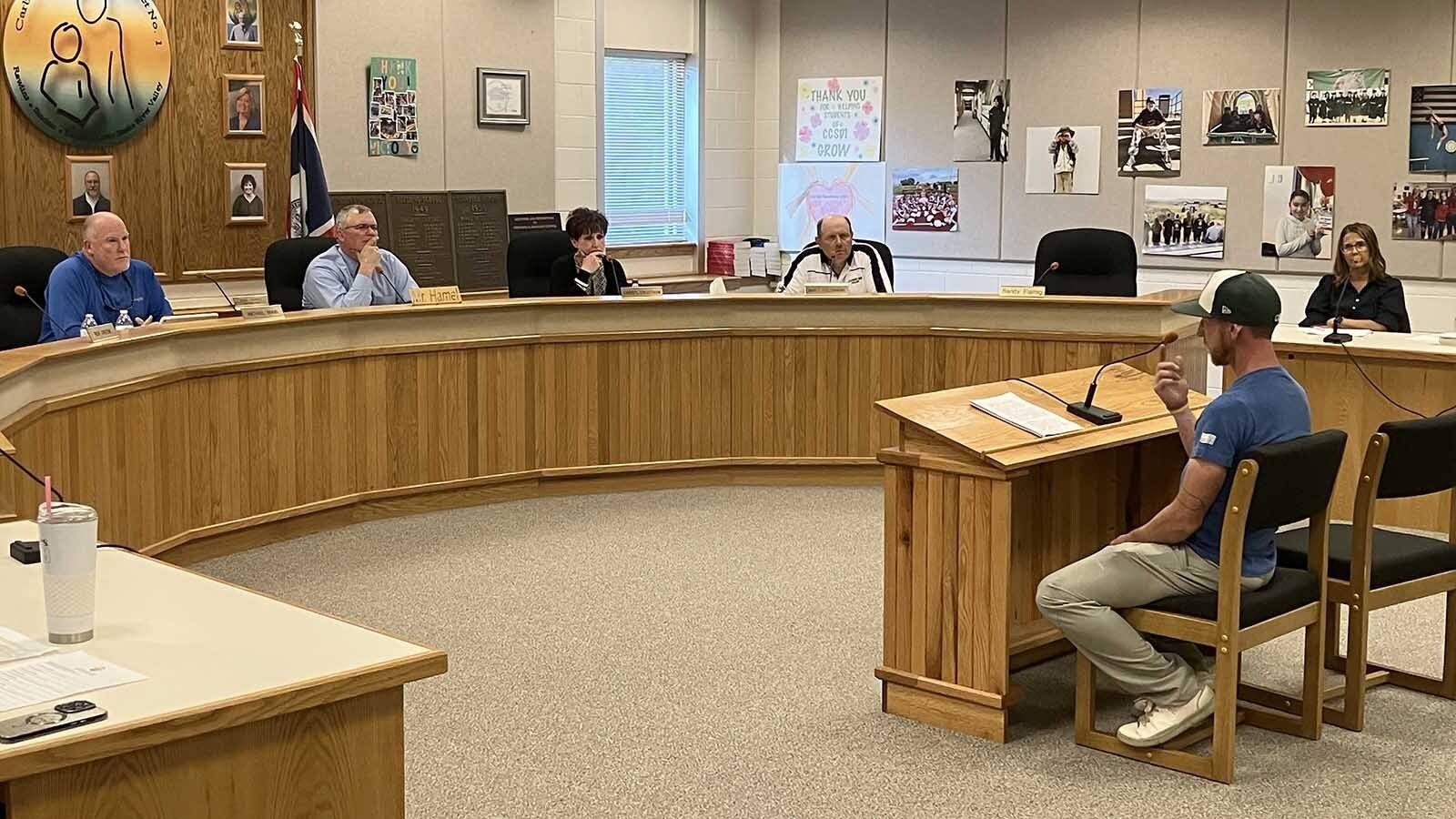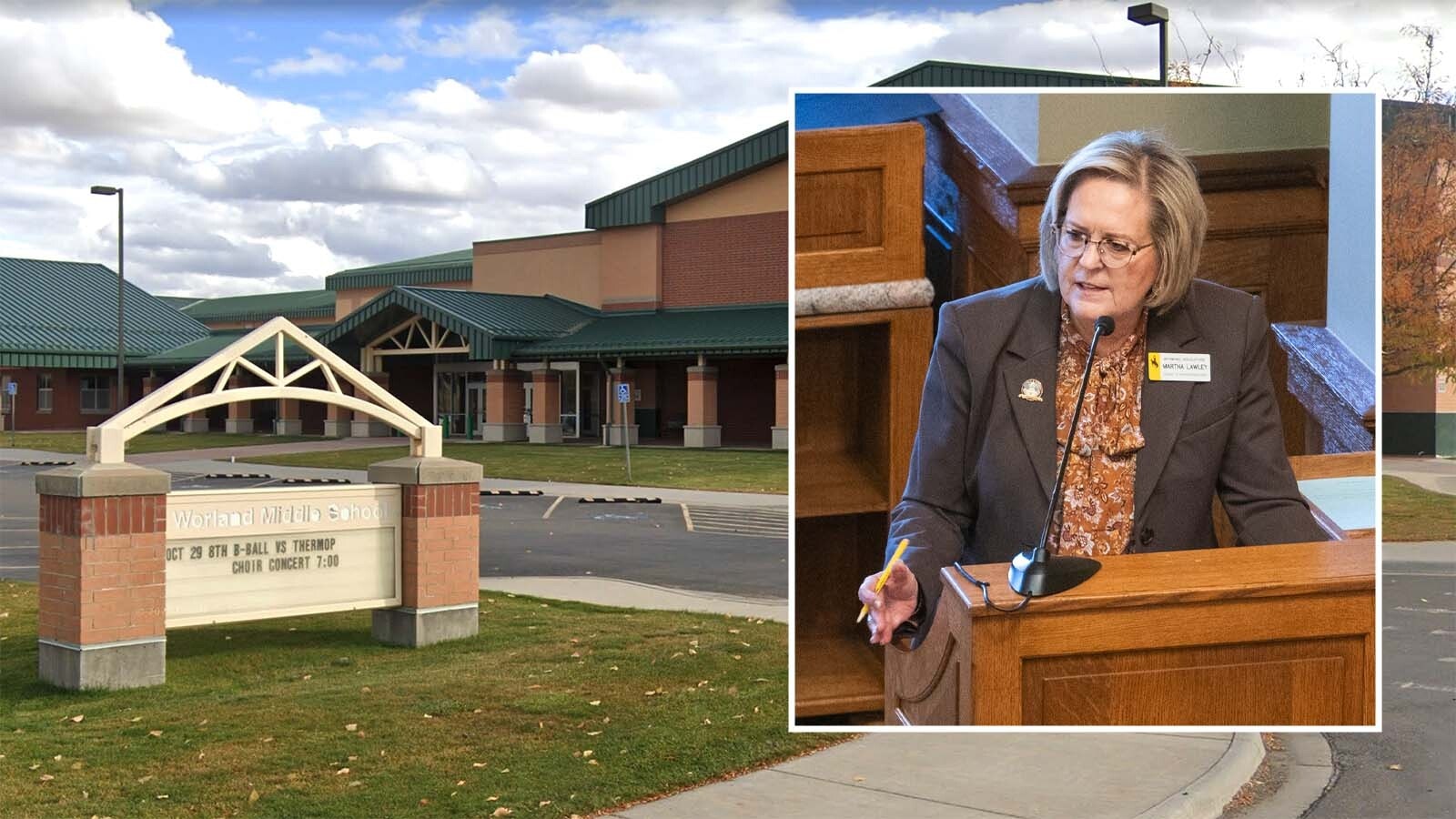By Becky Orr, Cowboy State Daily
Eric Trowbridge understands the importance of a computer science education.
As chief executive officer of The Array School of Design & Technology, a private school in Cheyenne, he oversees a computer training program that includes teaching web development and coding for students 17 years and older.
“It’s not a question of how important it is to the future; it is the future,” Trowbridge said of computer technology. “Every bit of the future for Wyoming is going to require computer science skills. If you do not know 20 to 25 years from now how to talk to computers, how to write code, you will not have a job. Plain and simple.”
A big step toward this future will occur at 8 a.m. April 25, when the State Board of Education considers Wyoming’s draft K-12 computer science standards during its meeting in Riverton, he said.
“Adopting the standards will put Wyoming at the top of all states for developing such a K-12 program in computer science,” Trowbridge said.
Wyoming is believed to be the first state to have such standards. Standards were developed after the Wyoming Legislature passed a bill in 2018 to require all public schools to offer a computer science education to K-12 students by the 2022-23 school year. They must be ready for implementation.
The Legislature’s action is a “leapfrog moment,” Trowbridge said. “Wyoming has been so far behind in (computer education); to jump ahead is a pioneering (move) that no one else has done before. We’re no longer the caboose.”
The Wyoming Department of Education organized a Standards Review Committee about a year ago in response to the legislation. The committee, made up of educators statewide, developed content and performance standards, which outline what to teach in each grade.
When the Education Department presented proposed standards to the Wyoming State Board of Education for approval at a meeting on March 21, the day ended with the standards left in limbo. While many who attended supported the standards, many others, notably other educators, took exception to the proposal and said the standards were too complex and would overwhelm overburdened teachers.
Others questioned the cost of implementation, estimated at $12.3 million, given the fact no extra funding was made available to put the standards in place.
The state board then rejected two proposals, one to approve the standards as submitted and another to send them back to the education agency for more work. Instead, the board directed the Standards Review Committee to keep working before the board’s April 25 meeting.
“I am incredibly disappointed,” Trowbridge said, adding that the move would water down the standards. “We literally are putting it in a trash bag and throwing it out the window.”
But Walt Wilcox, chairman of the State Board of Education, said the board’s action should not be seen as opposition to the standards, but instead as allowing more time to study ways to put them in place.
“No one is opposed to it (computer science standards), not the board or educators,” he said. “They are opposed to not having plans (in place) to do it.”
A lot of concern comes from elementary teachers who have not been taught how to teach the subject, Wilcox said. He pointed out the University of Wyoming and the state’s community colleges are just now putting in place an introductory certification track for teachers in computer science and programming.
“Some teachers are feeling overwhelmed and unprepared wondering how (the standards) will get taught,” he said.
Others against adoption said they worried about what other subjects they would need to scuttle to provide time for the new standards.
The review committee has met once since the March 21 meeting, said Kari Eakins, the Wyoming Department of Education’s Chief Policy Officer.
During that meeting in Lander, “the review committee met consensus and felt like they were able to meet concerns,” she said.
There will be another public comment period before April 25, she said. If the state board approves the standards, they will go to Gov. Mark Gordon for a 90-day review and for his decision.
“We’re doing something that Wyoming has never done before – adding a content area to the common core of knowledge,” Eakins said. “We are in a little bit of uncharted territory.”
Right now, as far as having enough time to implement the standards, the process is in “safe territory,” she said.
Wyoming State Sen. Affie Ellis, R-Cheyenne, supports the standards.
“The standards really reflect what we’re trying to get after,” she said.
Ellis, a member of the Joint Education Committee that sponsored the 2018 legislation, said she was surprised and a little concerned about the outcome of the March 21 meeting and added legislators need to be kept informed about the process.
Wyoming’s students could lead the computer science field if the standards are adopted and if graduates can find places to work, Trowbridge said.
He noted Array, formed in 2016, has placed 80 percent of its 33 graduates in computer-related jobs in Wyoming within 180 days of graduation. Their starting salaries are about $48,000 a year. But it hasn’t been easy because tech presence is not that strong in the state, Trowbridge said.
“If we don’t pass (the standards), we will never be able to recruit tech companies to create the jobs,” Trowbridge said.





